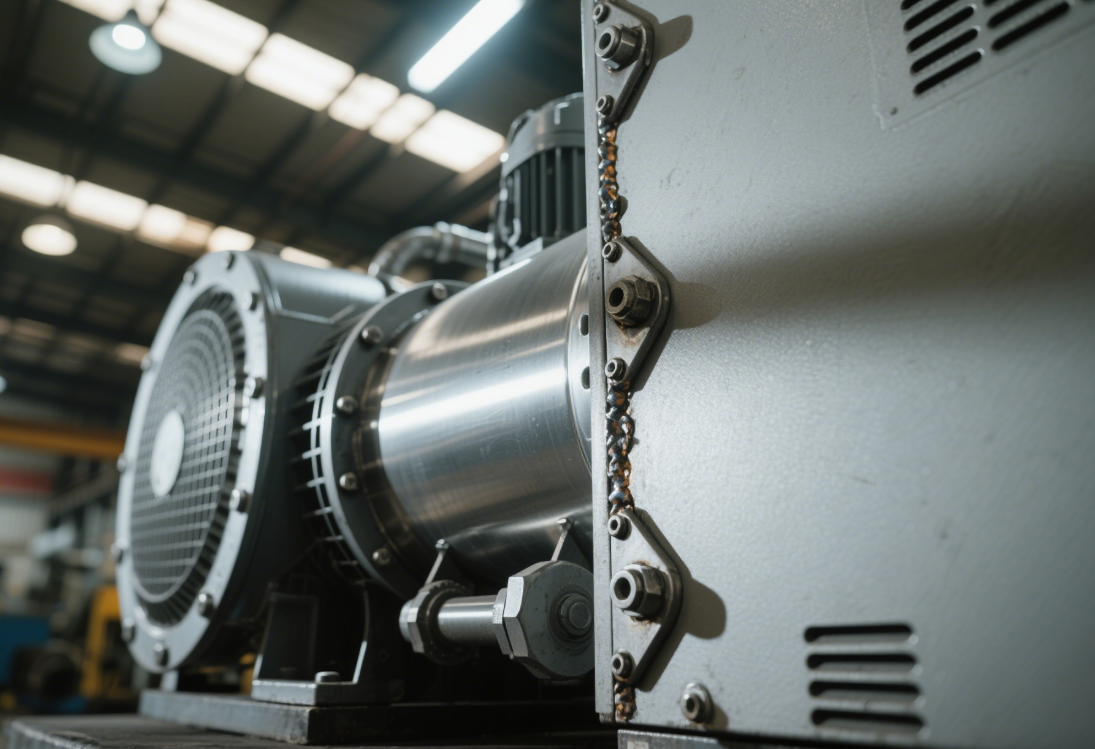When you're deep in the decision-making process for your compressed air system, especially if air purity is high on your checklist, a big question inevitably pops up: "Are oil-free air compressors actually a solid choice?" It's something we at CMN Compressor discuss with clients all the time, and honestly, it’s a vital point to consider!
The short answer? Yes, they absolutely can be fantastic! But, like many things in engineering, "good" often depends on your specific needs. So, let's dive in and explore what makes oil-free air compressors a great choice for many and what you should consider.

Before we talk about how "good" they are, let's quickly clarify what we mean by "oil-free." In a traditional oil-lubricated (or oil-flooded) compressor, oil is used within the compression chamber itself to lubricate moving parts, seal clearances, and help dissipate heat. This is very effective, but it means there's a chance, however small, especially with good filtration, that some oil can carry over into the compressed air.
Oil-free air compressors, on the other hand, are designed so that no oil enters the compression chamber. This can be achieved through various technologies:
Precision engineering: Using materials like Teflon or carbon composite for piston rings or seals that don't require oil lubrication.
Different compression principles: Technologies like scroll compressors, or water-injected screw compressors, inherently avoid oil in the compression area.
The key takeaway is that the air delivered by an oil-free compressor is, by design, free from added oil contaminants from the compressor itself. You can explore some of the excellent options we offer on our Oil-Free Air Compressor product profile.
So, what makes them a great choice? Here are the major advantages that get people excited:
1. 100% Oil-Free Air Purity (Class 0): This is the undisputed champion reason. For industries where even the tiniest trace of oil can be catastrophic, oil-free is not just good, it's essential. Think about:
Food & Beverage: Contamination can lead to product spoilage, recalls, and health risks.
Pharmaceuticals & Medical: Strict hygiene standards demand pure air for manufacturing and medical devices.
Electronics Manufacturing: Oil can damage sensitive components.
Painting & Coating: Oil can cause imperfections like "fish eyes" in finishes.
Textiles: Prevents staining of delicate fabrics. When you need ISO 8573-1 Class 0 certified air, oil-free is the way to go.
2. Reduced Downstream Filtration Costs & Maintenance: Because there's no oil introduced by the compressor, you don't need elaborate (and expensive) oil removal filters downstream. This means:
Lower initial investment in filtration equipment.
Reduced pressure drop across fewer filters, saving energy.
Less maintenance replacing saturated filter elements.
3. No Contaminated Condensate: The condensate (water vapor that condenses out of compressed air) from an oil free compressor is just water. With oil-lubricated compressors, the condensate is an oily emulsion that requires special (and often costly) treatment and disposal to meet environmental regulations. Clean condensate is easier and cheaper to manage.
4. Environmental Responsibility: Less oil usage and no oily condensate contribute to a greener footprint.
It's important to have a balanced view. While oil-free compressors offer significant advantages, there are a couple of points to consider:
Initial Purchase Price: Generally, oil-free air compressors can have a higher upfront cost compared to their oil-lubricated counterparts of similar capacity. However, it's crucial to look at the Total Cost of Ownership (TCO). Savings on filtration, condensate management, and potentially reduced product spoilage can often offset this higher initial investment over the compressor's lifespan.
Maintenance of Compression Elements: While you save on oil-related maintenance, the compression elements in some oil-free designs (like specific coatings or seals) might have a defined service life and require replacement eventually. However, manufacturers like us at CMN Compressor use high-quality, durable components to maximize lifespan.
Operating Temperatures & Noise: Some older or very specific oil-free designs might run slightly hotter or be a bit noisier than their oil-flooded equivalents because oil also acts as a coolant and sound dampener. However, modern oil-free compressors often incorporate advanced cooling and sound-attenuating designs to mitigate these factors effectively.
For a vast number of applications, especially those where air purity is critical, oil-free air compressors are often the superior choice.
The key is to assess your specific needs:
Is 100% oil-free air a requirement for your process or product quality? If yes, then an oil-free compressor is almost certainly the best investment.
What is your budget for initial investment versus long-term operational costs?
Are environmental considerations a high priority for your business?
At CMN Compressor, we believe in providing the right solution for the right job. Our range of oil-free air compressors is designed for reliability, efficiency, and delivering that crucial clean air.
If you're still wondering if an oil-free air compressor is the right fit for you or want to discuss your specific requirements, please don't hesitate to get in touch with our expert team. CMN Compressor is always happy to help you make the best decision for your needs!